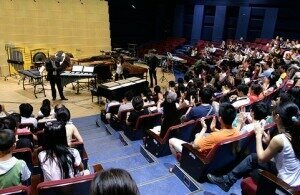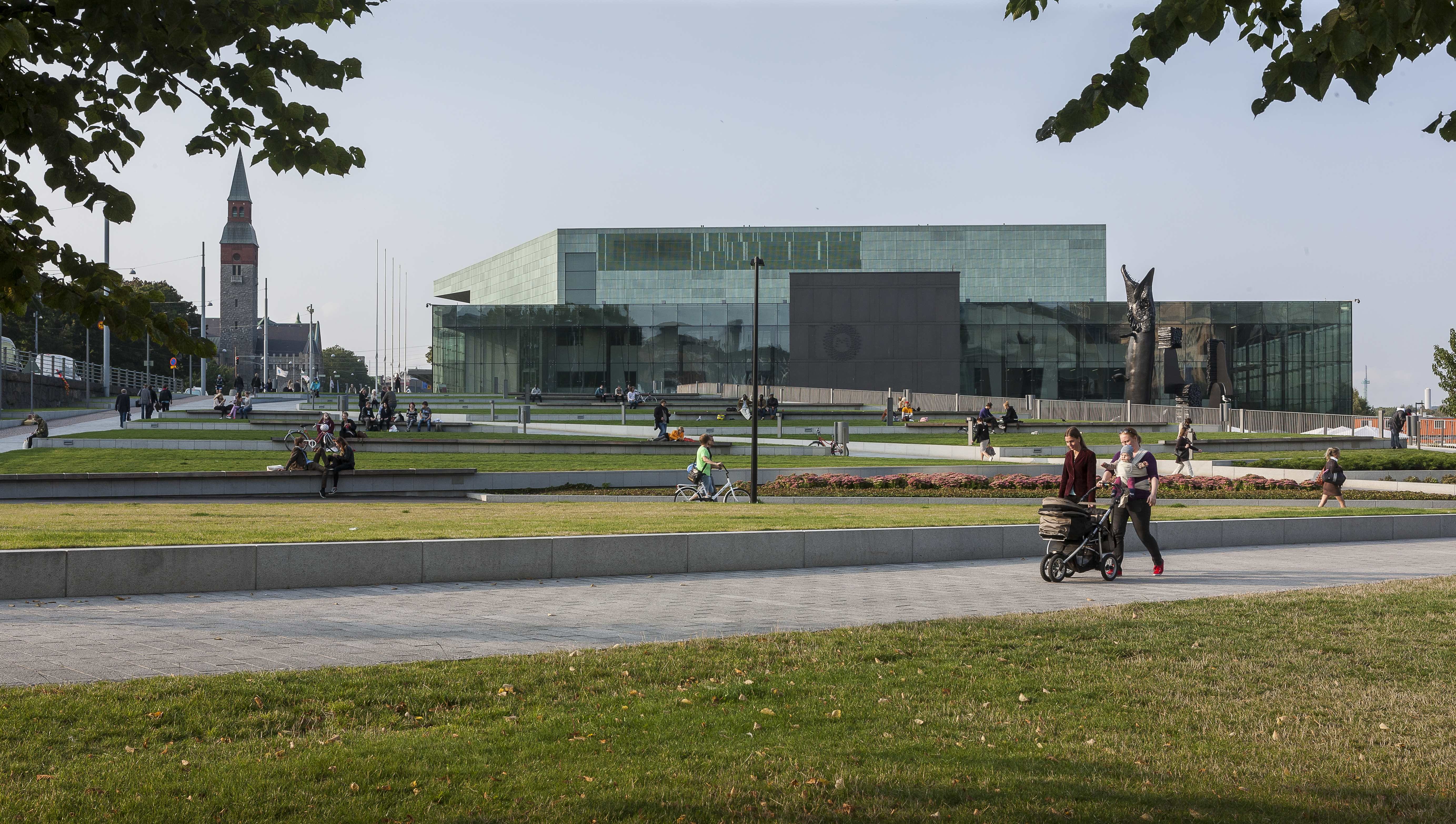
Credit: http://www.topbeijingtravel.com/
How does your selection process work? Is there a quota to fill, and does this hold even if there are no suitable applicants?
There are two rounds of auditions to gain a place at the Conservatory, and there is no quota. Every year hundreds of candidates audition, and we end up taking a couple of hundred new students [the Conservatory website states there are currently 1468 undergrads..wow!]. There are always more than enough candidates who want to gain a place here!
What’s the most important thing that students should come away from music college with?
In my opinion, young people should come away with knowledge of the professional world, of how to work, how to play in an orchestra. Most importantly, they must know how to play with each other, in order to function socially both with other musicians and in society in general.
Do you maintain links with your ex-students?
As a teacher, it’s nice to maintain relations with ex-students. We live in modern times with internet, mobile phones, whatsapp and so on, so it’s always interesting to see what my students get up to!
In college, I try to show my students the view from the big wide world of which I’ve been a part for so long, and sometimes they don’t understand; not through any fault of their own, but because it’s something that comes from life experience. However, after they graduate, very often going overseas to Europe and America, they write to me and tell me they now know what I was talking about!

Credit: http://www.bard.edu/
Here at Beijing there’s a strong emphasis on work and rehearsal. I think it’s good to instill a sense of hard work, but it can sometimes be detrimental if bad habits are practised in. We don’t have that much for managing stage fright; personally, I think that having nerves and the occasional difficulty on stage is normal! When I studied in France, my teacher told me that you should practice like when you’re stage, and then when you play on stage, you should have the feeling that you’re practising!
How many opportunities do your students have to gain performance experience and/or contact with the profession whilst studying?
It varies from instrument to instrument… In my case, with my cello class, my students have between 20 and 30 concerts every year, all over the country, in venues from concert halls to hospitals, kindergartens to universities! We play everywhere, so there are many opportunities to give public performances and to gain experience for their future performing live.
How different do you believe the varying career paths (solo player, chamber and orchestral musician) are, and how does your teaching reflect this?
I think the most important thing about making music is playing with each other. If you don’t know how to play with other people, how can you make music? Not everyone will end up a soloist, so learning how to play in an orchestra and playing chamber music is very important.
Evidently, our musical history is different to that of Western Europe, and so I work hard to help my students to understand ‘harmonic’ thinking from a western perspective. I make them take chances, play publicly, make music together in a cello group, to make them understand they have to listen to each other, and to themselves, in a harmonic sense. To play in tune with others, you have to think harmonically! I feel happy living here knowing I’m teaching my students to try and play things that are beautiful and musical, not just ‘correct’.
Do you encourage your students to participate at international competitions?
We have a lot of students who are very keen to participate in competitions, but above all it’s simply a case of money! It’s very expensive to travel, especially given that so many international competitions take place so far from China. I hope that more of these competitions will take place in China in the future!
Central Conservatory of Music Official Website








